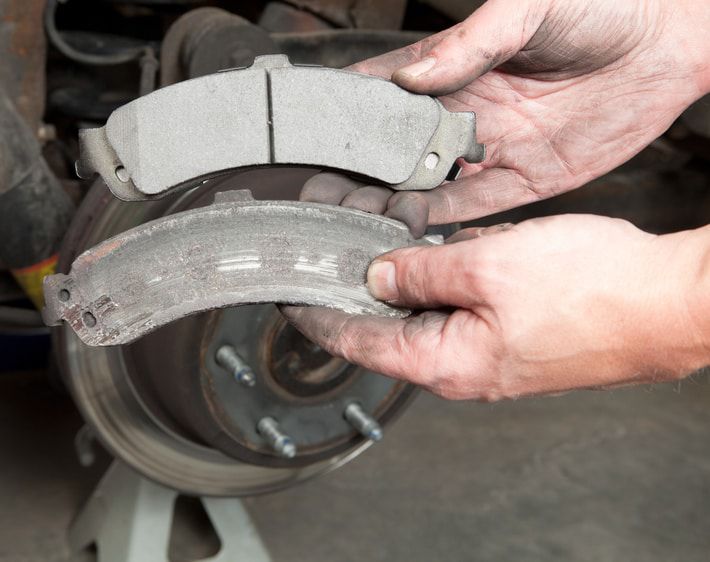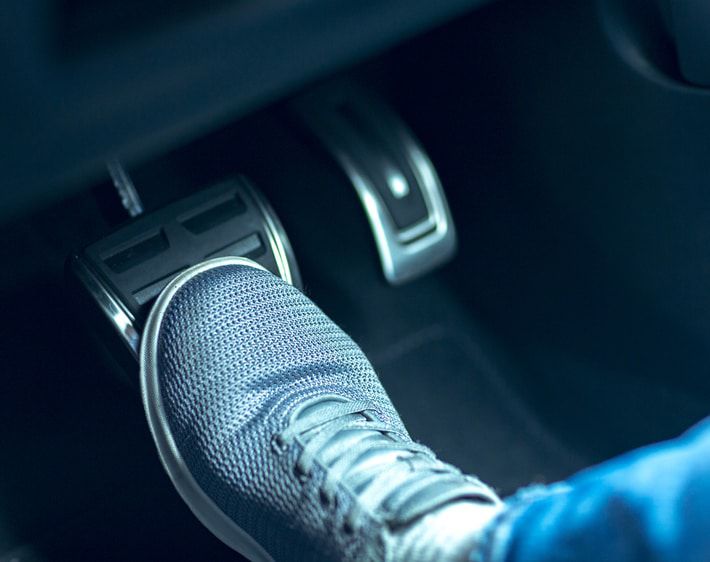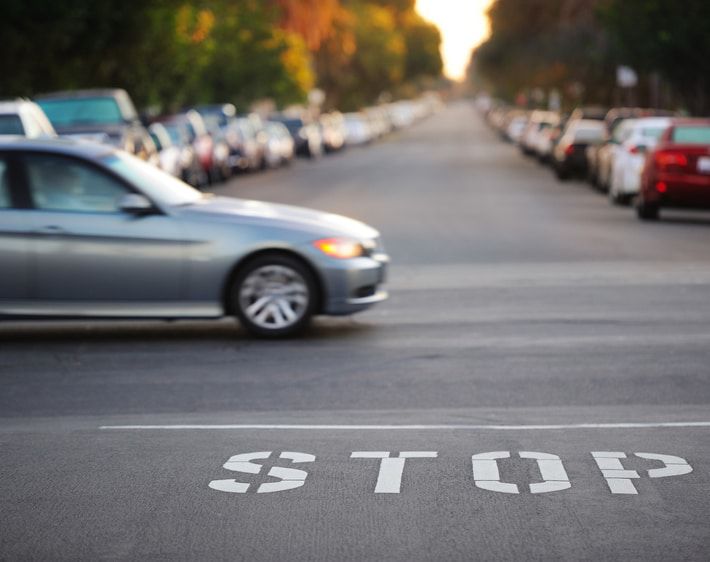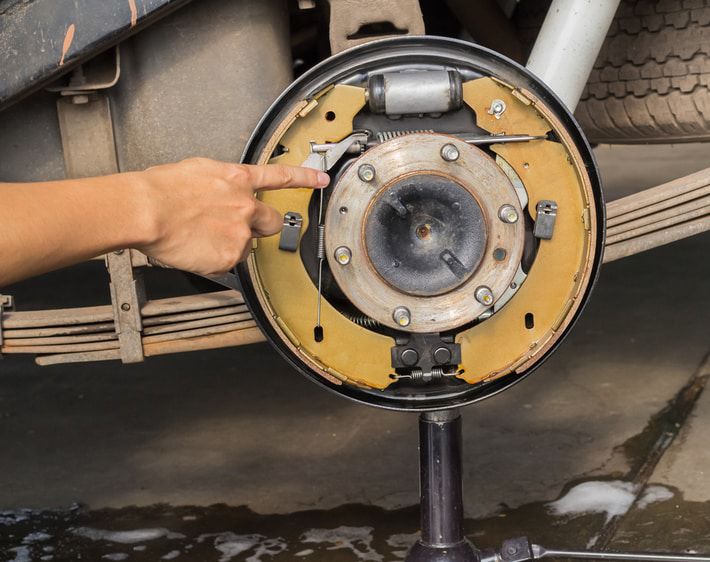Few things are more embarrassing than pulling up to a stoplight with your brakes squealing loudly. And while worn brake pads can be pretty annoying, they may also produce more severe side effects than gaining everyone’s attention at the intersection! Here are four things that can happen when you drive with worn brakes.
1. You can damage the brake rotors and calipers.
Your car’s brakes are a closely-connected system of moving parts, and when one component is damaged, the wear can trickle down into other elements.
For example, when your brake pads wear down past a certain point, you can risk damaging the brake rotors. When you brake, the brake pads squeeze the rotor to stop your car. However, when the pads are excessively worn, exposed metal on the pads grinds against the rotors every time you brake, producing a grinding noise and likely damaging the rotors.
Additionally, the heat generated from the metal-on-metal grinding that happens when worn pads squeeze the rotor can also warp and crack the rotor. Typically, brake rotors outlast the brake pads. However, not getting your brake pads replaced can damage these parts, requiring more frequent repairs.
Getting your brake pads changed and your brake system inspected regularly can help you get the most life out of all its parts and avoid expensive and preventable brake repairs.
2. Your brakes may have a slow response time.
The more worn down your brakes become, the harder it can be for them to slow and stop your vehicle (depending on how the pad wears). If you think your brakes are worn, it's essential to pay attention to their response time. If you're driving with worn brakes that are glazed, it may feel like you have to push the brake pedal down harder to stop.
Other side effects of driving on glazed brakes include longer stopping distances, brake slipping, and your car pulling to one side when you brake. The latter can occur when the brake pads do not engage or disengage the rotor as designed, and the pads aren't able to grip both sides uniformly, causing drifting or slipping when you brake.
3. Your car vibrates when braking.
When your brake system is in good working order, your vehicle should brake smoothly. But when your brake pads are excessively worn or the brake rotors become damaged, they can send vibrations throughout your car. If the car shakes or the steering wheel vibrates when you brake and stops when you let off the brake pedal, there's a good chance it's time to have your brakes serviced.
4. It can wear down your tires.
Believe it or not, driving with worn down brakes can actually wear your tires down, too! When you drive with worn out brake pads, rotors, or calipers, you may find yourself slamming on the brake pedal more often to slow or stop the car.
All this hard braking can wear your tires down quicker or cause them to become unbalanced, leading to uneven tire wear. Taking care of your brakes also means taking care of your tires!
Bottom Line: Don't Drive With Worn Brakes
So, can you drive with worn brake pads? Technically, yes. Should you? Absolutely not — especially, if they are excessively or unevenly worn. Having your brake pads changed when needed and brake system serviced regularly can help extend the life of individual brake system components, support brake safety, and even improve your overall driving experience!
A simple brake inspection could help avoid further vehicle issues, yet an estimated 25% of drivers on the road are driving with worn brakes! If it's been awhile since your last brake service appointment, then it's time to head to a Firestone Complete Auto Care near you for expert brake services from our professional technicians. We'll ensure your brake system runs (and stops) like it should, to help keep you safe on the road.



